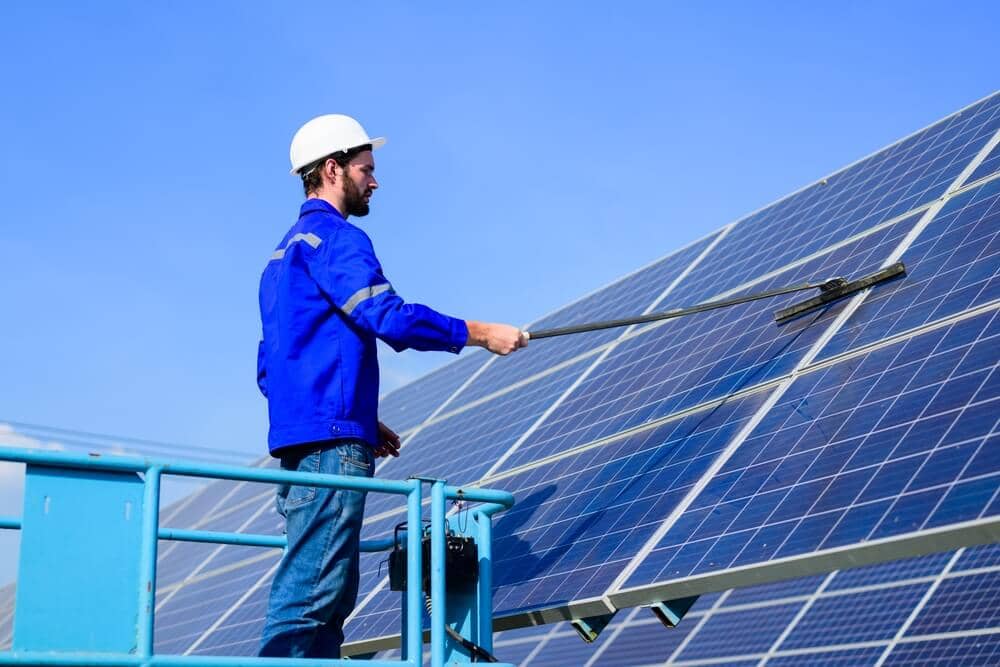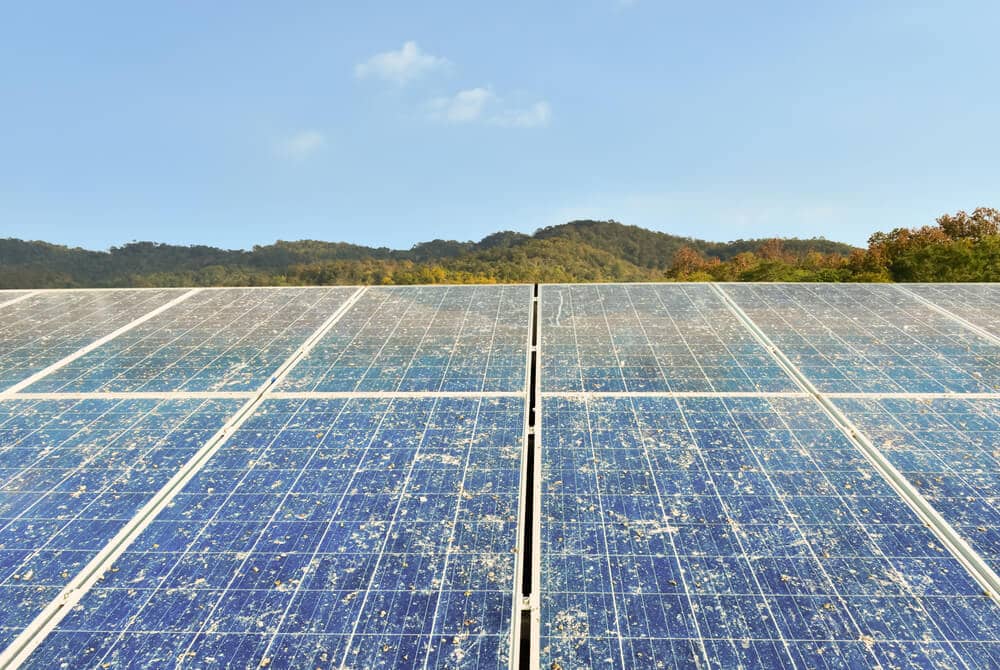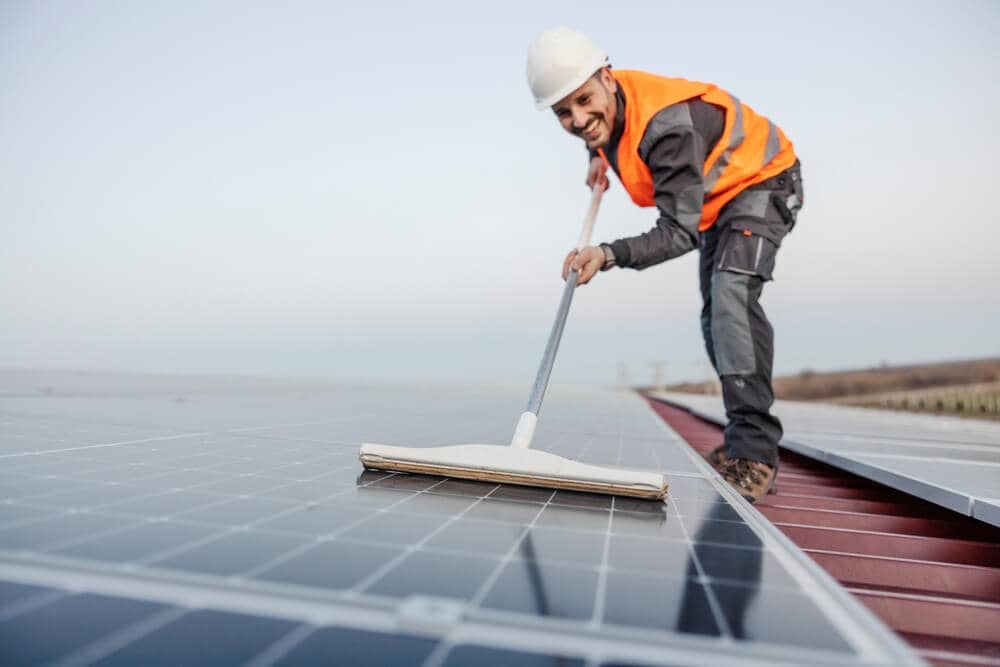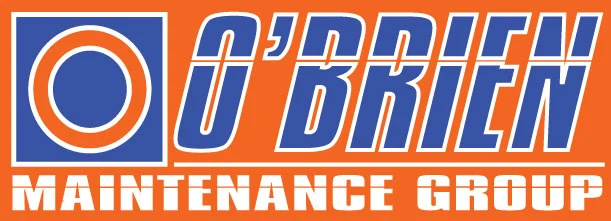
Solar panels are increasingly becoming the ideal choice for those seeking sustainable energy solutions. However, to ensure optimal performance and maximise energy production, maintaining clean solar panels is essential.
In this blog, we will dive into the topic of how often you should clean your solar panels. Additionally, we will explore the various factors that can influence the frequency of solar panel cleaning for both residential and commercial spaces. By gaining a better understanding of these factors, you can make informed decisions to keep your solar panels in top condition and reap the full benefits of solar energy.
So, How Often Should You Clean Solar Panels?
Solar panels are always at the mercy of the elements, and over time, various environmental factors can hinder their efficiency. Dirt, pollen, dust, bird droppings, and other debris can accumulate on the surface, reducing sunlight absorption and impeding energy generation. This makes regular cleaning a necessity to maintain peak performance. But when is the right time to do it?
Ideally, you should be getting solar panel cleaning services once or twice a year. However, the answer also depends on various factors. Read on as we discuss this in detail below.
Factors Influencing the Frequency of Solar Panel Cleaning

Location
The geographic location of your property plays a significant role in determining the frequency of solar panel cleaning. Areas with high levels of dust or pollution, such as near construction sites, industrial areas, or arid regions, may require more frequent cleaning to prevent dust buildup and maintain optimal performance.
Surrounding Environment
The immediate surroundings of your property can also affect the cleaning frequency. If you live in an area with many trees that produce sap or birds that frequently perch on your panels, regular cleaning may be necessary to remove bird droppings, tree debris, and other organic matter that can hinder sunlight absorption.
Climate
The climate of your region can impact the cleaning needs of your solar panels. Regions with heavy rainfall may experience more frequent panel cleaning to prevent the accumulation of dirt and grime that can result from the rain. Conversely, in drier climates, dust and debris may accumulate at a slower rate, allowing for less frequent cleaning.
Debris Accumulation
The amount and type of debris that accumulates on your solar panels will influence the cleaning frequency. Regular inspections should be conducted to check for visible dirt buildup, bird droppings, leaves, or other debris that may obstruct sunlight absorption. If a significant decrease in energy production is noticed, it may indicate the need for immediate cleaning.
Residential vs. Commercial Environments
The location and purpose of solar panels – whether they’re for residential or commercial use – can significantly influence cleaning frequencies. Commercial areas, especially those near industrial zones, might accumulate pollutants, dust, or debris more rapidly compared to a quiet residential suburb. Additionally, commercial panels, often located on larger buildings, can be exposed to different wind patterns and airborne particles, which might require more frequent attention. It’s essential to understand these distinctions to schedule appropriate cleaning routines.
How to Determine the Right Solar Cleaning Frequency

Manufacturer’s Guidelines
Refer to the manufacturer’s guidelines and recommendations for specific solar panel systems. The manufacturer may provide specific instructions on cleaning frequency based on the panel’s design, materials, and performance characteristics.
Professional Advice
Consulting with solar panel maintenance professionals can provide valuable insights tailored to your specific location and environmental conditions. Experts can assess the panels, consider local factors, and provide recommendations on the ideal cleaning schedule.
Visual Inspection
Regularly inspect solar panels for visible dirt, debris, or shading that could affect their performance. If a significant decrease in energy production is detected or visible dirt accumulation can be seen, it is likely time to schedule a cleaning session. Note that a thorough visual inspection might not be possible with a commercial building. In this case, call a professional right away and for safety purposes, do not attempt to DIY.
Does Regular Cleaning Help Ease the Burden on Energy Bills?
Absolutely, regular cleaning of solar panels can make a tangible difference to your energy bills. When sunlight gets blocked by debris or dirt, the panels can’t capture it to its fullest potential, reducing efficiency. By maintaining a consistent cleaning regimen, you ensure that the panels are always in their best condition to absorb sunlight. It means they produce electricity at or near their peak efficiency, translating to more energy for your home or office space and, consequently, lower energy bills. Think of it like giving your car a regular oil change; it just runs better and more economically when it’s well-maintained. Similarly, a well-cared-for solar panel system will more likely give you the cost savings you aim for.
To Sum It Up
Proper maintenance, including regular cleaning, is vital to ensure the optimum performance and longevity of solar panels. While there are general recommendations for cleaning frequency, factors such as location, surrounding environment, climate, and debris accumulation must be considered to determine the ideal cleaning schedule for your solar panels. By staying proactive and attentive to the condition of solar panels, owners can maximise their energy production and enjoy the full benefits of clean and sustainable solar energy.
Remember, if you ever have questions or doubts about the cleaning frequency of your solar panels, it is always beneficial to consult with professionals in the field who can provide tailored advice based on your specific circumstances.
How to Look for the Right Solar Panel Cleaners
When searching for the right solar panel cleaners, there are a few key factors to consider. First and foremost, it is crucial to find professionals with relevant experience and expertise in solar panel cleaning. Look for solar cleaning companies or individuals specialising in both residential and commercial solar panel maintenance with a proven track record of delivering high-quality results. Additionally, consider their reputation and customer reviews to gauge their reliability and customer satisfaction.
It is also important to inquire about the cleaning methods and equipment they use, ensuring they employ environmentally friendly practices that won’t damage the panels. Furthermore, compare prices and obtain quotes from different cleaners to balance affordability and quality service. Lastly, don’t hesitate to ask for references and seek recommendations from friends or neighbours who have had their solar panels cleaned professionally. Taking these steps will help you find the right solar panel cleaners who can ensure optimal performance and longevity of your solar energy system.
Trust O’Brien Maintenance Group for Quality Solar Panel Cleaning Services
When it comes to the cleaning and maintenance of solar panels, entrusting the task to professionals ensures thorough and efficient results. O’Brien Maintenance Group is a trusted provider of high-quality residential and commercial solar panel cleaning services, offering expertise and experience in keeping solar panels in pristine condition.
Our team of skilled technicians understands the unique cleaning requirements of solar panels and uses industry-leading equipment and techniques to deliver exceptional results. So if you are a property manager or facility manager overseeing large-scale solar projects, O’Brien Maintenance Group has the expertise to handle your cleaning needs. With our dedication to professionalism and reliability, we ensure that your managed properties’ solar panels are meticulously cleaned, removing any dirt, debris, or grime that may hinder their performance. Trust O’Brien Maintenance Group to maintain the optimal efficiency of solar panels and maximise the benefits of clean and sustainable solar energy.

